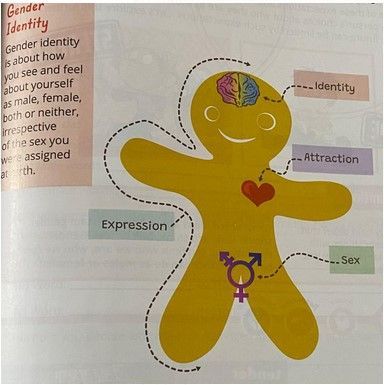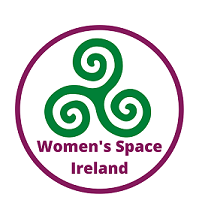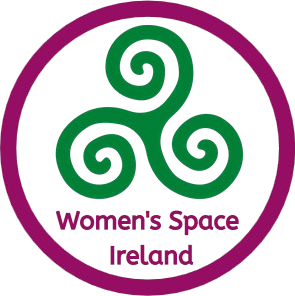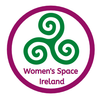Colonisation of the Irish Curriculum Part III

Gender Identity Theory in the new Junior Cycle
By Colette Colfer 12th August 2023
Republished with kind permission from Colette's Substack.
September is almost upon us. Blackberries glint on brambles, apples ripen red on trees, combine-harvesters whoosh through billowing fields of golden barley, and parents rush to purchase schoolbooks, uniforms, and shoes, many of them entirely oblivious to radical new material about gender identity contained in Irish school books this year.
Few could have predicted on July 4th 2013, when a male-to-female transgender activist addressed the Irish parliament’s Committee on Health and Children to discuss transgender health issues and said ‘Education is the future’, that just ten years later the controversial theory of gender identity would be presented to young teenagers in Irish schools as uncontested fact.
At the heart of gender identity theory is the idea that everyone has an internal and subjective sense of a gendered self that may, or may not, correspond with their biological sex. Proponents argue that this gender identity should take precedence over biological sex in matters of law, government policy, education, sports. Most also assert that gender identities should be unquestioningly affirmed and that social, followed by medical and surgical transition should be supported - regardless of age. Subscribers also popularised the idea that children can be ‘born in the wrong body’, although this phrase is now less in vogue.
The statutory body responsible for developing the Irish curriculum, the National Council for Curriculum and Assessment (NCCA), has specified ‘gender identity’ as a topic to be covered in the recently revamped Social, Personal and Health Education (SPHE) curriculum for the Junior Cycle that is being rolled out this coming school year. The new curriculum is for students aged roughly 12 to 16 in their first three years of post-primary education. However, crucially, the NCCA does not specify exactly how the topic should be presented. This means that schools and publishers have leeway on how to teach it. Some have clearly gone way beyond the remit.
One book being used by some schools is New Health and Wellbeing SPHE (1) published by The Educational Company of Ireland (Edco) which contains a 13-page unit on ‘Sexual Orientation and Gender Identity’. Edco has opted to present gender identity theory as fact and even to promote the social transition of children. I purchased the book this week as it is specified on the list for first year students at a large local all-boys Catholic secondary school in my area.
The Edco book uses the controversial Genderbread Person graphic, developed by activist Sam Killermann, that presents sexuality as a continuum. This graphic is regularly used by gender identity activists groups such as Stonewall, Mermaids, Transgender Equality Network Ireland (TENI), and others. The graphic and the associated exercises in the Edco book reinforce rather than challenge stereotypes. One exercise, for example, gets students to sort words such as ‘bikini’, ‘buggy’, ‘rough’, ‘motorbike’, into ‘male words’ and ‘female words’. The implicit message is that boys who do not feel ‘male’ according to gendered stereotypes, may have a gender identity that does not align with their sex.
Gender identity according to one definition in the book is ‘about how you see and feel about yourself as male, female, both or neither, irrespective of the sex you were assigned at birth’. How can a person see themselves or feel about themselves as male, female, both or neither? Sex, meanwhile, is taught as something ‘assigned’ at birth rather than observed and recorded. It is as though sex is randomly distributed by doctors in maternity wards like smarties being handed out to children at a party. A red smartie for you. A male sex for you.
Sexuality is presented as something that includes gender identity. This conflation of issues clouds the air. Sexual orientation, unlike gender identity, does not involve the changing of names or pronouns, does not involve irreversible medicalisations and surgeries, and does not pose safety and fairness issues for women’s sports or single-sex spaces. Conflating these issues means that differences between sexual orientation and gender identity are overlooked, and irreversible changes associated with gender identity issues are minimised. It also reinforces the cementing of gender identity issues to gay rights as already seen in acronyms such as LGBTQIA+ and in the Progress Pride flag.
The NCCA published a draft Junior Cycle SPHE curriculum specification in autumn 2022 for consultation purposes and the glossary section included a definition for the word ‘cisgender’: ‘When someone’s gender identity aligns with the sex they were assigned at birth.’ However, this was removed from the final curriculum specification published in February 2023. Edco has opted to run with elements of the draft specification rather than the final specification and their book includes a definition for cisgender.
Most controversially however, the book appears to promote the affirmative approach to gender identity and to endorse social transition as it urges readers to remember to use people’s preferred names and preferred pronouns. Although social transition is often understood as a kind and supportive route to take when it comes to gender identity and, indeed, even experts agree that it can bring short-term relief, The Cass Review interim report into gender identity services for children and young people in the UK, points out that early social transitioning is an active intervention and ‘is not a neutral act’ with potentially significant effects on the young person in terms of psychological functioning. Research on social transition is lacking and long-term outcomes are unclear.
Transgender Trend, a UK-based organisation concerned about recent trends in the numbers of young people with gender dysphoria, states that ‘What little evidence we do have indicates that affirmation and social transition may fix a child into an identity they may have grown out of if left alone’.
One of the most recent studies on long-term outcomes of boys with gender identity disorder showed that 87.8% of participants grew out of it (desisted) and only 12.2% persisted (including the one child in the study who had socially transitioned). The majority (63.6%) of participants grew up to be gay. This along with other studies on gender dysphoria show that very few children with gender dysphoria will still want to transition as adults.
I have no doubt that when that activist spoke to Irish parliamentarians in 2013 stressing the importance of education on transgender issues, that their aims were noble. With the rising number of young people identifying as transgender in Ireland, more resources are needed to treat people with gender dysphoria in line with best medical practice based on the highest quality research and evidence available. Discrimination against those with gender dysphoria also needs to be tackled and more supports put in place.
Every person in Ireland deserves equal rights. Children and adolescents with gender dysphoria deserve more consideration in educational resources than just a regurgitation of activist resources. All children deserve an educational environment where critical thinking skills are fostered and where controversial theories and contested beliefs are not simply presented as fact. In addition, whilst the SPHE new Junior Cycle curriculum is said to be grounded in values that include respect, equality and inclusivity, there appears to be little to no consideration of adolescents who may not have a gender identity or who believe that biological sex rather than gender identity should be prioritised in matters of sport and law. True respect, equality and inclusivity should involve consideration of all.
Colette Colfer is a lecturer, writer and worked previously as a journalist. To receive new posts and support Colette's work, please consider becoming a free or paid subscriber to her Substack.


